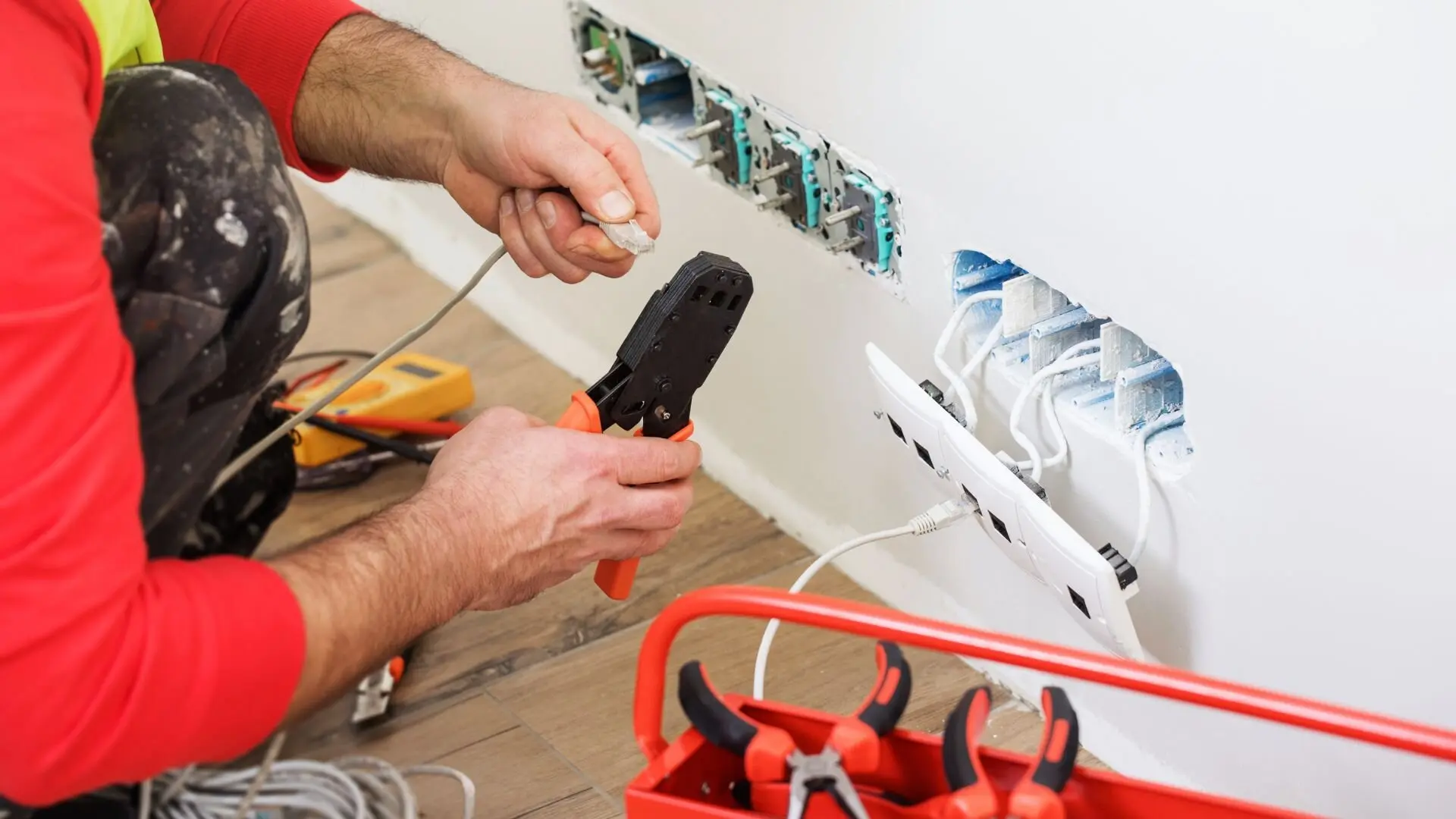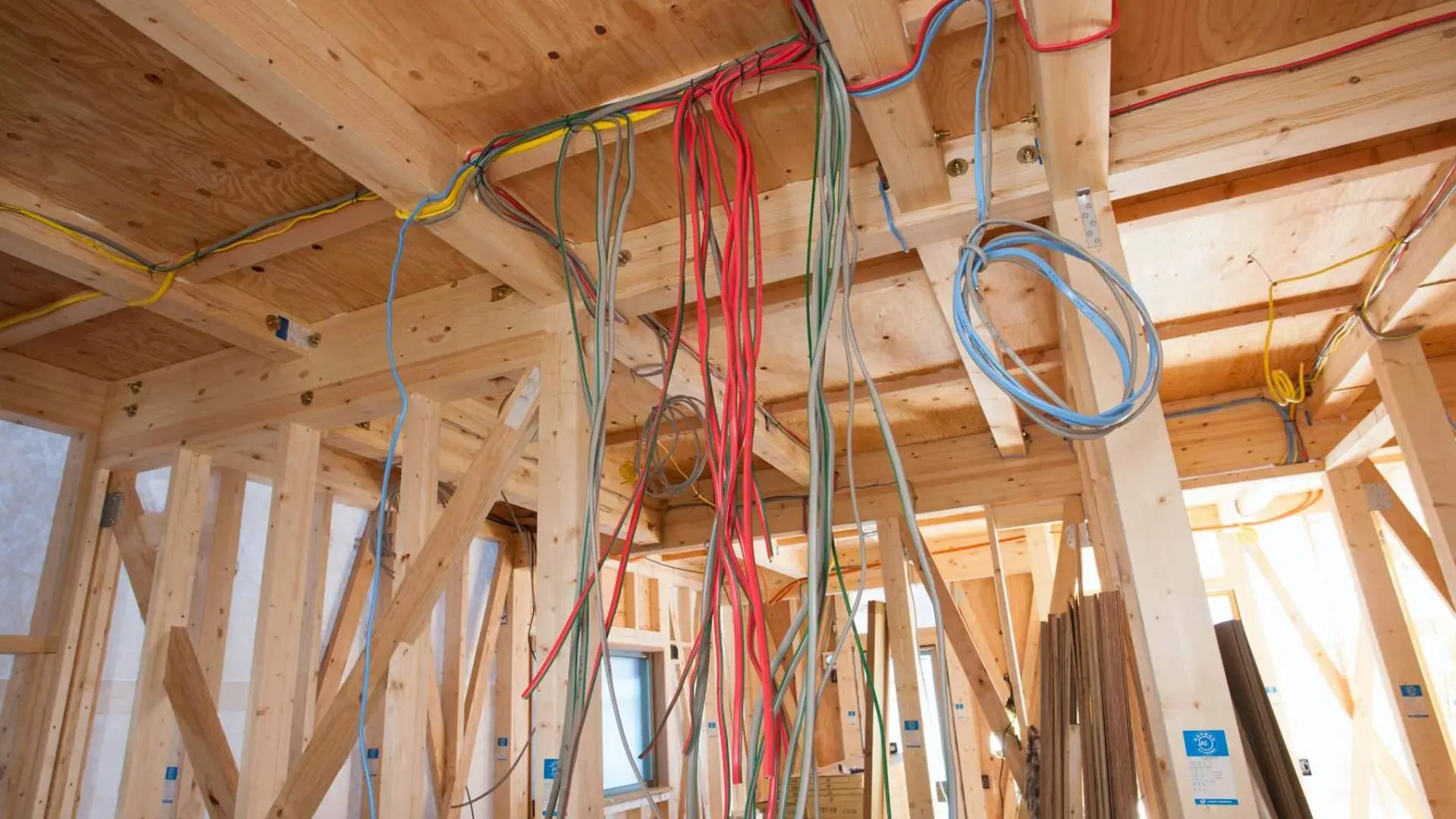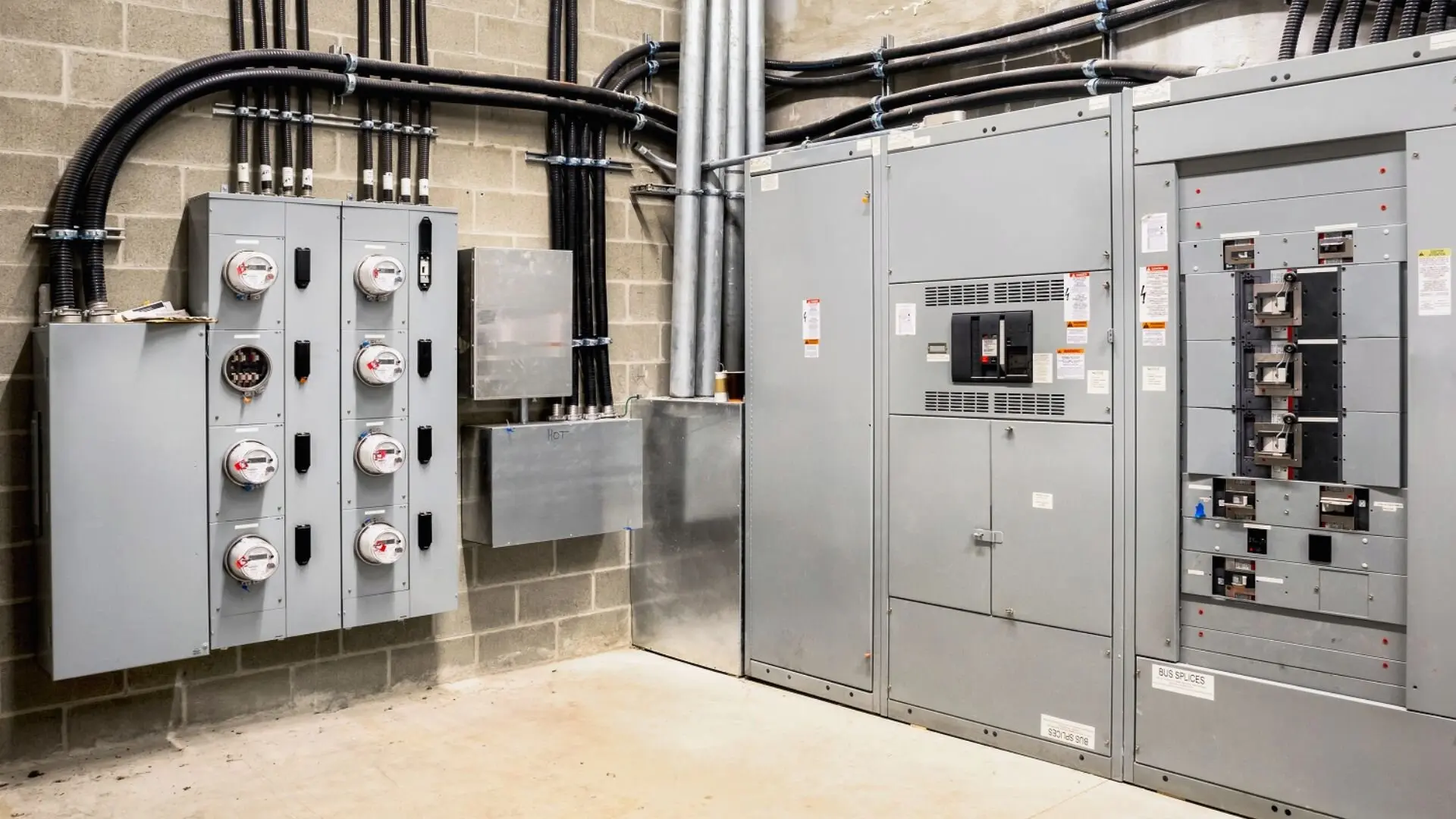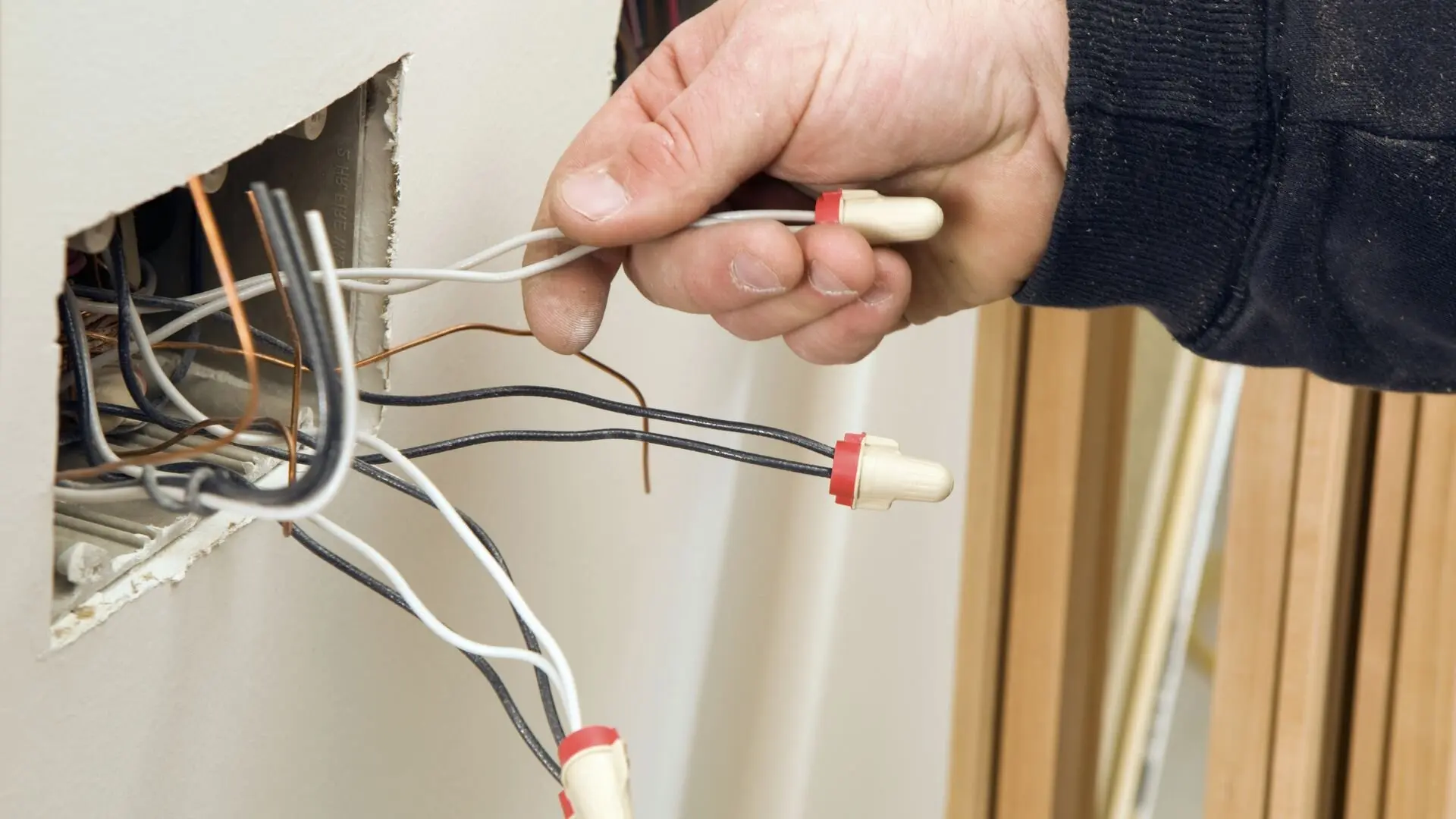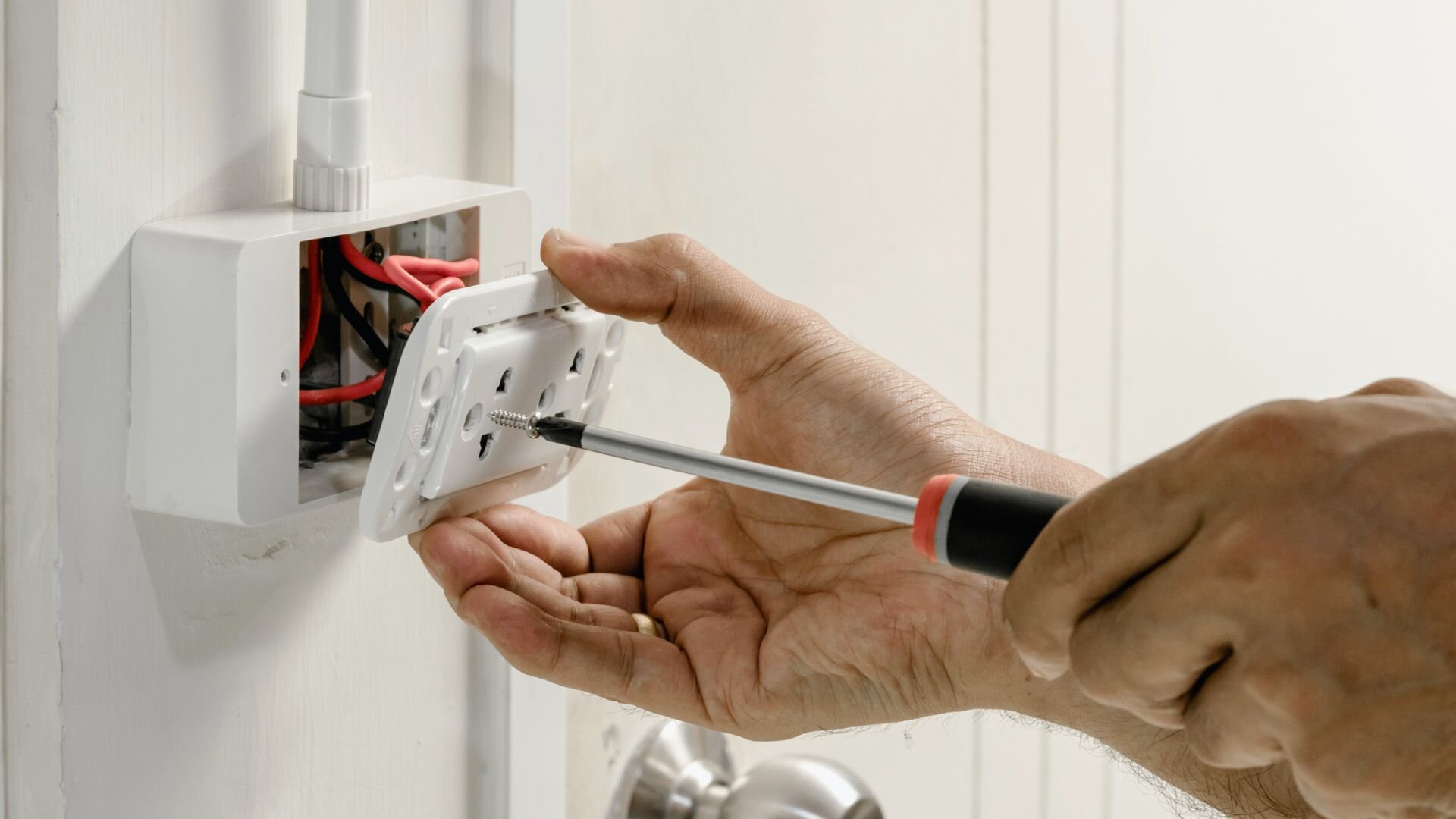![2023 10 Eltecrician Preparing To Mount Wires In The Wall Socket Eltecrician Preparing Mount Wires Wall Socket]()
Both residential and commercial electrical work centre around installing and looking after electrical systems. Yet, they differ significantly in terms of scale, complexity, and the need to comply with building codes.
Residential electrical work primarily deals with homes and smaller buildings, focusing on the technology and systems we use daily. On the other hand, commercial electrical engineering tackles the larger and more intricate systems found in offices, retail spaces, institutions, and various other commercial settings. In this piece, we’ll delve into the key differences between residential and commercial electrical works.
Understanding Residential Electrical Work
Residential electrical work involves installing and maintaining electrical systems in residential buildings, such as single-family homes, townhouses, and small apartment complexes. This includes running wiring to power outlets, light fixtures, appliances, and other household devices.
![2023 10 Red And Black Wiring On Wall Socket Red Black Wiring Wall Socket]()
Home electrical systems need a stable supply of electricity for necessities like lighting, heating, cooling, and entertainment. Electricians must be skilled at safely connecting to the main electrical service, setting up proper circuits, grounding, and managing surge protection.
Residential electricians work closely with homeowners and contractors to complete new electrical installations and upgrade or repair existing systems. Safety is a top priority, given the risk of shock and fire when working with household-level voltages.
Key Aspects of Residential Electrical Projects
Residential electrical projects involve careful planning and execution. Proper permits and inspections are required to ensure all work complies with national and local residential building codes. Blueprint reading skills are necessary to understand an architect or homeowner’s design plans and lay out an effective wiring scheme.
![2023 10 Residential Electrical Wirings Residential Electrical Wirings]()
New installation projects require running circuits to rough-in boxes before walls are closed. Key considerations include fixture and outlet placement, circuit loads, grounding, and surge protection. Troubleshooting of existing systems looks for damages, electrical faults or overloads. Repairs and upgrades require safely shutting off power, identifying defects, and restoring code. Attention to detail and quality craftsmanship are essential for experienced residential electricians.
Repairing electrical systems, installations in residential houses, and maintaining safety and security systems are typical tasks residential electricians perform. They are crucial in ensuring the electrical infrastructure operates efficiently and safely in homes. Residential electricians typically work closely with homeowners, contractors and inspectors throughout projects.
Exploring Commercial Electrical Work
Commercial electrical work deals with systems that are much larger and more intricate than those in residential settings. These installations and services are essential for places like office buildings, stores, restaurants, schools, warehouses, and other commercial facilities.
Projects involve high voltages, complex lighting and signage, heavy equipment, specialised systems and tighter deadlines. Planning requires interpreting architectural drawings, sequencing work, and coordinating subcontractors. Commercial electricians must understand and follow national and local building codes for commercial buildings.
![2023 10 Commercial Electrical Panel Boards Commercial Electrical Panel Boards]()
In new construction, electricians set up wire runs and install electrical boxes before any walls go up. Troubleshooting is crucial for identifying issues and cutting down on downtime for operational systems. With high voltages at play, safety is absolutely critical.
Experience and specialised knowledge in commercial electrical systems are essential for navigating larger projects. Proper permitting, inspection and documentation are also vital.
Distinctive Features of Commercial Electrical Projects
Commercial electrical projects differ from residential work in several key ways. Larger-scale commercial systems involve higher voltages than household current to power more substantial equipment.
Complex lighting schemes and signage requiring specialised circuits are typical in retail and office spaces. Fire alarms, security systems and commercial AV or data cabling are integral to commercial installations. Building codes often require backup generators and redundant power supplies for continued emergency operation.
![2023 10 Commercial Establishment Showing Eletrical Design Commercial Establishment Showing Eletrical Design]()
Tight construction schedules demand efficient planning and coordination between trades. Extensive permitting, inspection and compliance documentation must align with commercial building codes. Larger spaces require electrical distribution systems that consider equipment locations, future changes and overall load capacities.
Experience navigating union rules and safety protocols on job sites is essential. Attention to serviceability allows for future maintenance, repairs and renovations.
Safety Regulations: Residential vs. Commercial
Ensuring safety is always the top priority in electrical work. However, due to the risks involved, safety regulations differ between residential and commercial settings.
Residential electrical focuses on preventing shock and fire hazards associated with line voltage systems. Proper grounding and surge protection help safeguard homeowners.Commercial safety regulations aim to prevent major incidents through extensive ground fault equipment, hot work permitting and strict personal protective standards.
![2023 10 Electrician Pulling Small Wires On The Wall Socket Electrician Pulling Small Wires Wall Socket]()
This includes arc flash-rated clothing, electrical hazard awareness training and specialised equipment for high-voltage environments and confined spaces. Commercial regulations also address life safety systems, emergency power requirements and avoiding downtime of critical infrastructure.
Compliance is monitored through inspection and enforcement of up-to-date electrical codes tailored for residential or commercial environments and their unique hazards. Continuing education keeps professionals current on regulations protecting workers and occupants.
Pricing Factors in Electrical Services
Several factors influence the final price when providing quotes for electrical work. For residential projects, the size of the home, the number of fixtures or outlets, and upgrading vs. new installation affect costs.
Larger commercial projects involve higher material costs due to larger wire, conduit, equipment and the need for specialty components. The location of the job site requires consideration of travel time and parking availability for equipment and workers.
![2023 10 About To Close Wall Socket Close Wall Socket]()
Permits, inspector fees, and insurance are additional costs passed on to the client. Labour rates factor in the complexity of work, any specialty licensing required, union or non-union labour, and overtime needs to complete jobs on short schedules. Alternative energy or low-voltage integrated systems like home automation command premium pricing.
Unforeseen conditions hiking costs must be assessed case-by-case to determine change orders. An accurate estimate relies on a clear project scope and site assessment from experienced electricians.
Hiring the Right Electrician
When hiring electricians for either residential or commercial jobs, it’s vital to conduct a thorough vetting process. Ensure they have the proper licensing and certifications from the Department of Labour. Reviews and references from past clients can reveal valuable insights into their experience, quality of work, and level of customer service.
Ask electricians to explain quote contents and work scope to ensure complete understanding. Opt for electricians with insurance policies to protect clients from accidents. Commercial jobs demand electricians who are credentialed for specialised systems and familiar with codes for larger facilities.
Bright Force Electrical has provided top-quality electrical services throughout Southern California. Their expert electrician team has extensive experience in residential and commercial projects, large and small. Bright Force is fully licensed, bonded and insured.
They are committed to outstanding customer service, thorough work, and compliance with all safety regulations. Read more positive reviews at brightforceelectrical.com or contact Bright Force Electrical today to discuss your upcoming electrical needs.




